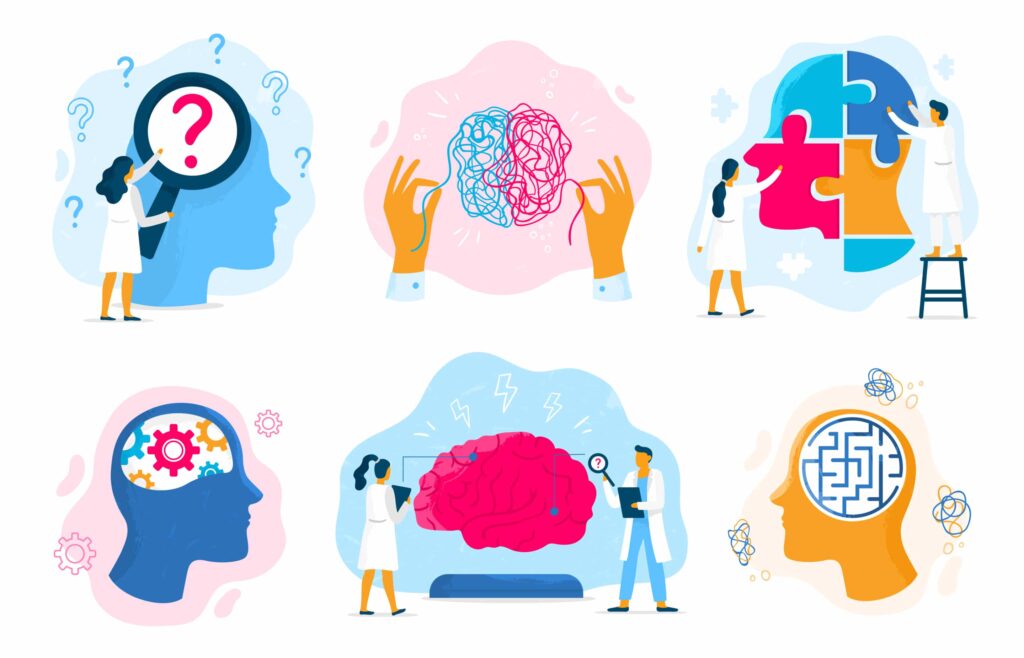Childhood trauma can leave lasting imprints that surface in adulthood in various ways. This trauma may stem from physical, emotional, or sexual abuse, or from significant events like the loss of a parent or close family member. These early experiences can result in physical, emotional, and social challenges that persist throughout one’s adult life. The impact of trauma varies based on the individual’s upbringing and the coping mechanisms they’ve developed over time.
Causes of Childhood Trauma
Childhood trauma often arises from abuse, violence, neglect, or the death of a loved one.
Abuse, which can be physical, sexual, or emotional, is a leading cause of childhood trauma. Although the severity of abuse can vary, all forms of abuse have the potential to cause lasting trauma.
Exposure to violence, whether directly experienced or witnessed, can also lead to childhood trauma. This could involve domestic violence between parents, gang violence, or conflicts within the extended family, including siblings.
Neglect takes on many forms and can be easily concealed. Physical neglect occurs when a caregiver fails to meet a child’s basic needs, such as providing food, clothing, shelter, or adequate supervision.
Emotional neglect is another source of trauma and can be more difficult to detect. A child who appears self-sufficient may actually be receiving little emotional support, affection, or reassurance from their caregiver.
Medical neglect, where a caregiver denies a child necessary medical attention, poses additional risks. As children are particularly vulnerable to health issues during development, medical neglect can lead to long-term physical and cognitive delays that persist into adulthood.
The loss of a loved one is another common source of childhood trauma. This is often more complex, as no individual may be directly at fault, and others around the child may be equally affected by the loss. Nonetheless, the death of a close family member can have a lasting emotional impact.
Indicators of Childhood Trauma in Adults

Recognizing signs of childhood trauma in adults can be challenging, particularly if the person has developed ways to hide or cope with their symptoms. Additionally, trauma often overlaps with other mental health conditions, which can make it difficult to pinpoint its root cause.
Common signs of unresolved childhood trauma in adults include:
- Anxiety
- Depression
- Dissociative episodes
- Low self-esteem or feelings of worthlessness
- Difficulty controlling anger
- Hypervigilance or heightened paranoia
These symptoms may emerge during childhood or remain dormant for years, only to surface later in life. Trauma affects the brain in unique ways for each individual, which is why one person might experience anxiety and hyper-vigilance while another may struggle with depression and anger. Some may even go through a range of symptoms over time.
Treatment Options for Childhood Trauma

If you or a loved one is experiencing the effects of childhood trauma in adulthood, it’s crucial to be aware of the available treatment options. At Alter Behavioral Health, we provide a range of trauma-informed recovery programs designed to help individuals process and heal from their past experiences.
Our approach incorporates various therapeutic modalities tailored to meet the unique needs of each person. These include:
- Attachment-Based Therapy
- Brainspotting
- Client-Centered Therapy
- Exposure Therapy
- Eye Movement Desensitization and Reprocessing (EMDR)
- Mindfulness and Relaxation Techniques
- Narrative Therapy
- Trauma-Focused Cognitive Behavioral Therapy (CBT)
Our programs can be adapted to different levels of care, including crisis stabilization & intervention, residential mental health treatment, partial hospitalization programs, and intensive outpatient treatment. Our mission is to support clients in their healing journey, helping them find a sense of safety and security as they move forward in life.
Honing in On Different Trauma Therapy Modes
Attachment-Based Therapy is a trauma-informed approach grounded in attachment theory, which emphasizes the importance of early relationships between a child and their caregivers. This therapy helps clients heal attachment wounds, fostering stronger connections with both themselves and others.
Cognitive Behavioral Therapy (CBT) is based on the idea that thoughts, emotions, and behaviors are interconnected. By identifying and changing unhelpful thinking and behavior patterns, individuals can enhance their emotional well-being. CBT empowers clients to become their own therapists by teaching them to recognize and challenge negative thought patterns, develop healthier coping strategies, and ultimately improve their overall quality of life.
Eye Movement Desensitization and Reprocessing (EMDR) follows a structured eight-phase treatment model that combines elements of CBT, mindfulness, and bilateral stimulation (like eye movements, hand tapping, or auditory tones). While EMDR is most commonly used to treat trauma, it can also be effective for other conditions such as anxiety, depression, and phobias.
Locating Trauma Treatment Near You
Finding the right treatment for adults dealing with childhood trauma can be challenging. Often, co-occurring mental health conditions add to the complexity of the trauma. At Alter Behavioral Health, every individual is greeted with warmth, compassion, and unwavering support. We provide comprehensive care for clients nationwide and work with many insurance providers. Unsure if Alter is the right fit for you? Reach out to our admissions team to explore your options and learn more.
About Alter
Alter is a behavioral healthcare provider that specializes in evidence-based clinical treatment approaches. We provide a wide range of programs for adults and families experiencing mental health conditions including schizophrenia, depression, borderline personality disorder, anxiety, substance abuse, and more. This is done through client-centered care for a full-continuum of treatment. We serve the entire U.S. population from our revolutionary locations throughout sunny Southern California. Whether an individual needs 24/7 care or wants an outpatient program – we are there to guide every step of the journey. For more information, give us a call at (877) 613-9776 or visit our website at alterbehavioralhealth.com.



